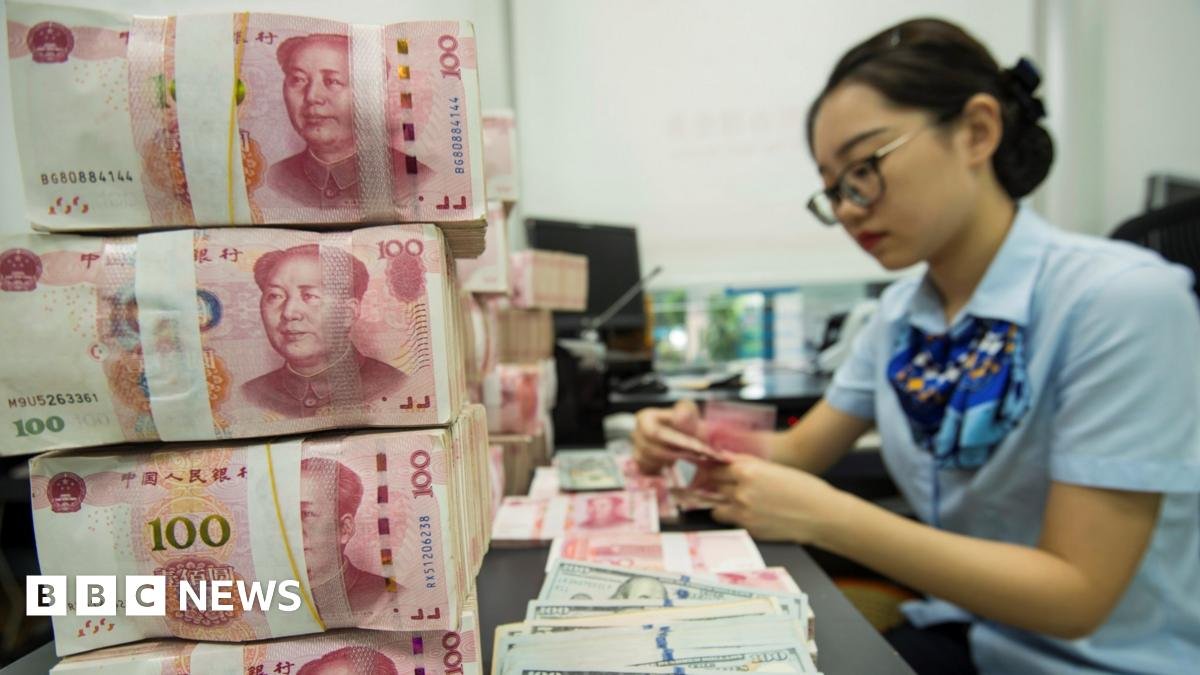May 17, 2005 — The Treasury Department’s semi-annual report to Congress on foreign exchange released today called for change in China’s policy of linking its currency (the yuan or renminbi) to the value of the dollar.
Since 1995, the Chinese government has maintained an official exchange rate of 8.28 yuan to the U.S. dollar. This policy keeps the price of Chinese goods relatively cheap for American consumers and makes U.S. goods more expensive.
What does this mean to the average consumer? Some economists say the Chinese currency peg has undervalued the yuan by 40 percent in the world market. That makes Chinese goods less expensive to American consumers and American products more expensive in China than they would be if the exchange rate was not fixed.
If China was to allow its currency to “float” with international currency demands, Chinese goods would immediately see a 40 percent increase in price relative to the U.S. dollar. In turn, American-made goods sold in China would see an equally steep reduction in price.
What does the United States want China to do? Today’s report could have found that China was engaged in unfair currency practices, but did not. If a country is found to be manipulating its currency unfairly the government can impose economic sanctions.
The report suggested that the Chinese government must take steps toward liberalizing its currency policies before the next Treasury report or it would likely face sanctions.
“While China’s 10-year-long pegged currency regime may have at times contributed to stability, it no longer does so,” said the report. “The peg blocks the transmission of critical price signals, impedes needed adjustment of international imbalances, attracts speculative capital flows, and is a large and increasing risk to the Chinese economy. Indeed, Chinese officials have publicly acknowledged the need to move to a more flexible system, have repeatedly vowed to do so, and have undertaken the necessary and appropriate preparations.”
Bush administration officials have called on China to take action to move away from the fixed-exchange system for the past two years.
“… we are not calling for an immediate full float with fully liberalized capital markets,” Treasury Secretary John Snow said in a statement. “This would be a mistake at this time — China’s banking sector is not prepared. What we are calling for is an intermediate step that reflects underlying market conditions and allows for a smooth transition — when appropriate — to a full float.”
What’s likely to happen? Economists and currency experts believe that during the next month or so China will announce a revaluation of its currency to a new rate closer to the natural exchange rate. It’s a step toward letting the Chinese currency float.
ABC News caught up with Goldman Sachs Vice Chairman Bob Hormats in Beijing this afternoon. He has spent time meeting with senior Chinese government officials during the past few days. Hormats answered a few questions about today’s Treasury report on Chinese currency announcement:
ABC: What do you think of today’s Treasury report?
Hormats: I think today’s move was pretty well expected. The U.S. is not in the mood to impose sanctions. The Chinese are pretty much expected to make a move soon. In the eyes of the Bush administration, imposing sanctions would be make it harder to affect the direction of the relationship.
ABC: Is a change in the Chinese currency system imminent?
Hormats: Imminent (is) not likely the word. It is awfully hard to predict the timing of a change. Chinese officials are working in the direction of change, but they need to do this in a thoughtful way and prepare for it. When they feel that they have done sufficient preparations, they’ll do it.
ABC: What will the change look like?
Hormats: I think there are two options. They definitely won’t let it float. There are a few likely choices: 1) keep the peg, but have a wider trading band for the currency exchange rate; 2) the other is to provide a new peg it and have that be the center of a new band. Whatever the change, we’ll likely see the yuan pegged to a basket of currencies; the yen, dollar, euro and maybe the Singapore dollar. The Chinese say they are considering changing the currency regime instead of revaluing their currency.
ABC: Why is it taking so long to make this move?
Hormats: There are several reasons. It’s not just an economic decision, it’s a political decision, too. They have to get the state council, the cabinet and the senior communist party leadership on board for a change. Second, they have to explain it to people here. They have a public that pays attention to these things. They want to be sure that it doesn’t adversely affect the rate of job growth in the country because so many workers are moving from rural areas to the urban centers. They want to be sure that when they do it that it will be seen by the markets as credible and convincing, so there won’t be additional speculation about future moves.







